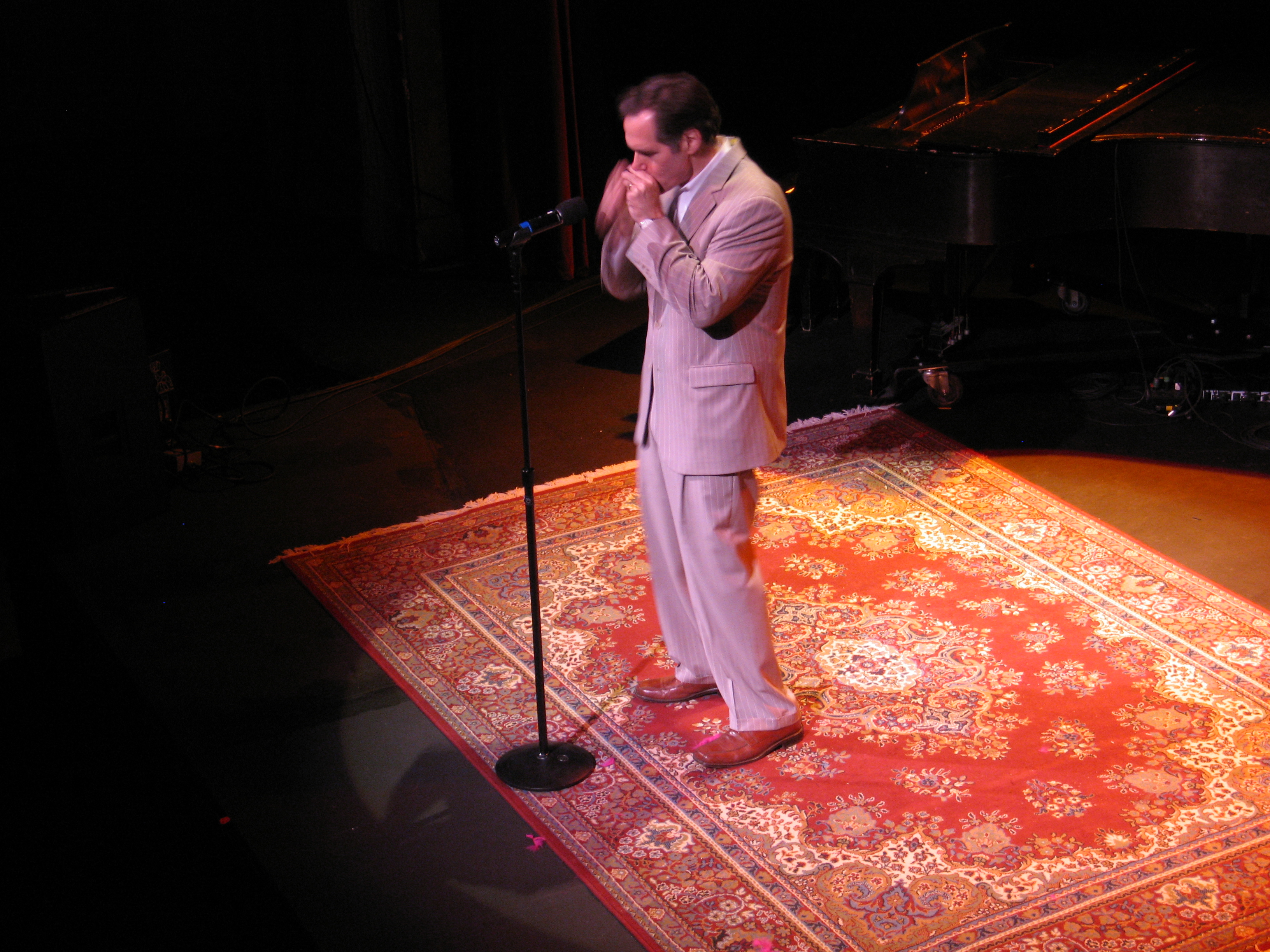
If You’re Not Using Natural Minor Harps Yet, Why Not?
A poster wrote to the Harp-l internet mailing list today to say that his band is doing a lot of stuff in A minor, he’s been playing these tunes in 3rd position on a G harp, and he’d like to try something else to freshen up his approach to these tunes. Several people wrote in to say that he ought to try 5th position (A minor on an F harp) or 4th position (A minor on a C harp). Those are certainly valid choices. However…
Here’s what I wrote:
4th position (A minor on a C harp) and 5th position (E minor on a C harp, A minor on an F harp) are alternatives that might work for you on standard harps. Both feature a flat 6th and minor 3rd. Both have significant limitations. In 5th position, you have to avoid the draw 5 reed, which is a flat 2nd–not very useful in most blues and trad styles–or substitute the overblow on blow 5. In 4th position, you can only get the tonic note in the lowest octave with a double bend on the draw 3 reed, which as everyone knows is tough to do perfectly in tune. A problem with both these positions is that the choices of chords are very limited.
And here’s the big message:
If you really want to buff up your minor tunes, I recommend that you get a Natural Minor harp or two. On A minor tunes you could play either a Lee Oskar NM in A (2nd position is A minor) or E (first position is A minor). (Lee Oskar names the NMs after the key in 2nd position.)
Either of these will give you a much wider range of minor chords to work with, including minor 7th and 9th chords, and will also allow you to get a lot more mileage out of your 1st and 2nd position licks. So your bandmates will definitely hear a difference.
I still hear harp players say silly stuff like “it’s cheating to use non-standard tunings,” notwithstanding the fact that Steve Baker, Brendan Power, Lee Oskar, and myself, to name only a few, none of whom are exactly slackers, have been using non-standard tunings for years.
Any harp player who wishes to make life as difficult as possible for him or herself by avoiding inexpensive and simple solutions to common problems is of course welcome to do so. But my advice is to try a minor tuned harp. (And plenty of other non-standard tunings after that, maybe starting with a country tuned harp, one of my all time favorites.)
I’ve actually seen one of these “non-standard tunings are cheating” guys advise novice players to avoid half the notes on the standard-tuned harp in order to make it “easier” to play in a minor key. Wow. That’s easy? Easy is having all the notes you need built right into the harp. Easy is having full chord voicings for multiple chords over a 3-octave range. Easy is not beating yourself up just to prove a point.
That’s my story and I’m stickin’ to it.
Related Posts
5 Comments
Leave a Reply
You must be logged in to post a comment.
WHAT’S NEW
Categories
- Audio/Video
- Blog
- Blue Future
- Digitech RP Tricks and Tips
- Discography, CDs, Projects, Info, Notes
- Featured Video
- For the Beginner
- Gallery
- Hunter's Effects
- Hunter's Music
- Huntersounds for Fender Mustang
- Meet the Pros
- More Video
- MPH: Maw/Preston/Hunter
- My Three Big Contributions
- Player's Resources
- Pro Tips & Techniques
- Recommended Artists & Recordings
- Recommended Gear
- Recorded Performances
- Reviews, Interviews, Testimonials
- The Lucky One
- Uncategorized
- Upcoming Performances
- Zoom G3 Tips and Tricks
I use minor harmonicas very rare only if I really need chords or special minor harp color. I usually always have Dm harp in my case. 1, 2 and 3 positions are ok on minor harps. But playing different keys on minor harp need bunch of practice, to get all scales. So my soloing on minor tuned harps leads to be less controllable (as I’m not as familiar with them, as with richter) and I dislike it.
@Boris: I can’t live without them. The chords are fabulous, and the soloing merely takes time and practice. I make a habit of using different tunings for my walk-around harps, and in that way I learn the layouts without special effort, just playing as I go.
I just thought I would get my first natural minor Harp as they were on offer.. And I also seem to have acquired a great big smile. That baby is going to get some use, and will likely get a few mates soon as well..
Way to go!
Richard I have just answered a post on Harp Tone Junkies on FarceBeurk, and said pretty much the same. I LOVE my minor tuned harps they add so much to my playing and the songs that I can play along with…..as you say, why make life difficult